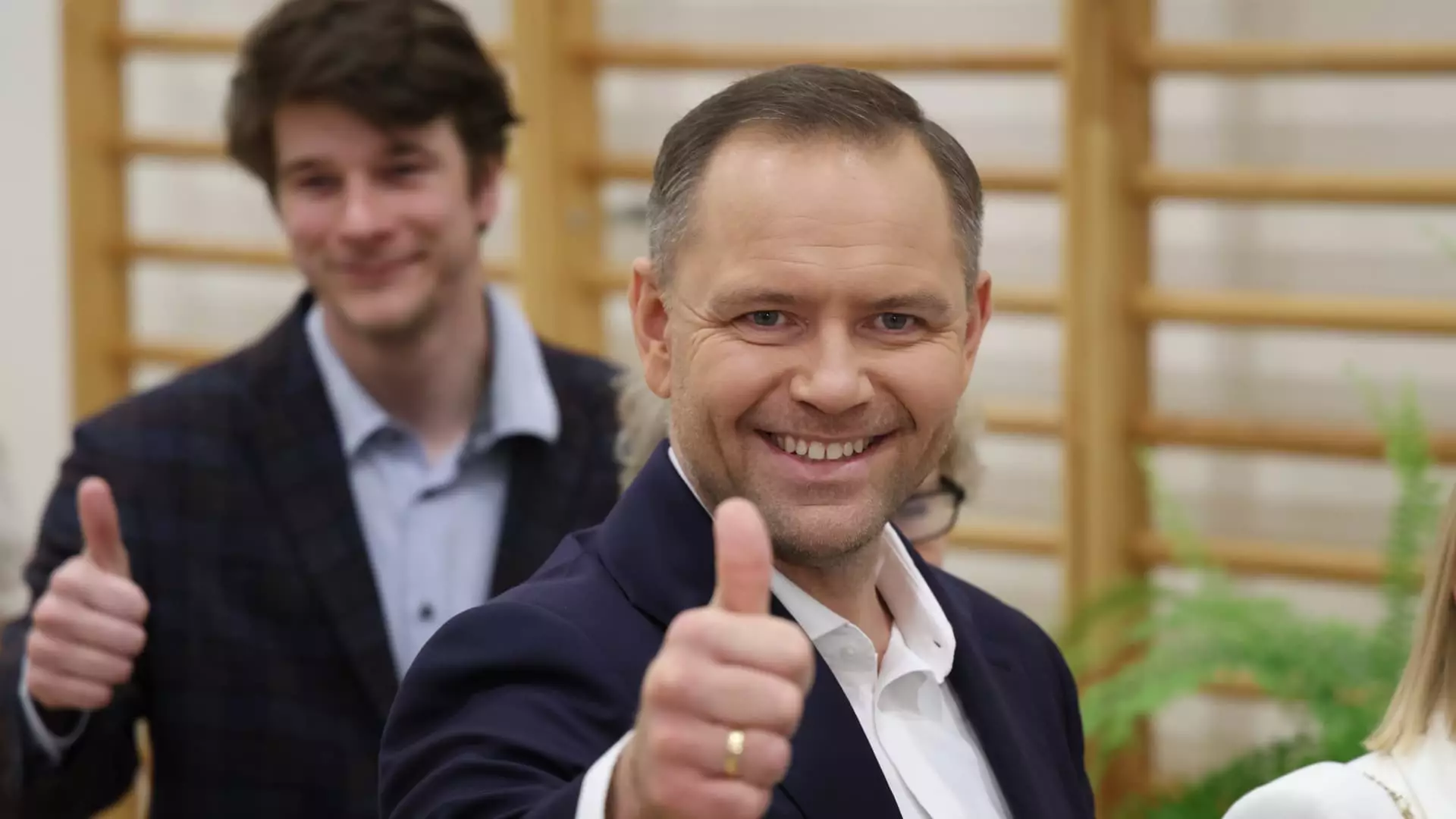Poland’s recent presidential election, marked by the narrow victory of Karol Nawrocki of the Law and Justice party (PiS), represents more than just a changing of the guard—it signals a dramatic shift in the political landscape of a nation that has been navigating its complicated relationship with both the European Union and its Eastern neighbors. Backed significantly by the Trump administration, Nawrocki’s ascent to the presidency has raised significant concerns regarding Poland’s pro-EU policies and its stance on the war in Ukraine. The razor-thin margin of victory—50.89% to 49.11%—indicates a deeply divided electorate and suggests that the Polish electorate is far from unified behind any singular vision for the country’s future.
This election was not just a referendum on Nawrocki and his policies; it was a reflection of the growing discontent many Poles feel toward the status quo. The pro-European Union government, led by Donald Tusk, had meticulously worked to mend frayed ties with Brussels after years of tumult. Yet the allure of nationalism, bolstered by promises of sovereignty and security, has managed to captivate a significant portion of the populace. The complicated conundrum Poland finds itself in post-election is an intriguing case study in how fear and nationalism can implode recently established alliances and principles.
The Impact of Nationalism on Foreign Relations
Nawrocki’s presidency poses a clear potential for a retrenchment from the cooperative spirit that defined Poland’s interactions with its neighbors and the EU over the last several years. The immediate aftermath of his election raised apprehensions in Brussels regarding the future of EU funds, amounting to a staggering 137 billion euros, which had previously been released under Tusk’s administration after resolving rule-of-law disputes. The implications of his Eurosceptic tone and his campaign rhetoric, which included criticism of Ukraine’s leadership, could severely cripple Poland’s standing both within the EU and among its allies.
As someone who has openly criticized Ukraine’s President Volodymyr Zelenskyy and scoffed at NATO’s ambitions for Ukraine, Nawrocki risks alienating not only a nation in desperate need of solidarity against Russian aggression but also undermining the collective security framework that Eastern Europe has relied upon since the end of the Cold War. For a country that has substantively supported Ukraine, Nawrocki’s shift could symbolize a dangerous recalibration that echoes across the continent, raising alarms not just in Warsaw but in capitals across Europe.
Baring the Right-Wing Populist Threat
Nawrocki’s victory raises essential questions about the resurgence of right-wing populism across Europe. His alignment with Trumpist ideals and U.S. reinforcement of far-right populism evokes memories of political contests elsewhere that have seen similar rhetoric gain traction. With leaders like Nawrocki emerging victorious in the aftermath of perceived leftist failures, Europe finds itself grappling with a potentially extremist ideological wave that could further marginalize liberal values on which many European nations pride themselves.
Some may argue that this nationalist surge is a reactionary response to globalization and progressive liberalism, but it is alarming to think that the fears and grievances propagated by nationalist rhetoric could exacerbate societal fractures and economic disparities. The mass support for Nawrocki highlights a critical failure among traditional political forces to connect with the very real concerns festered among ordinary citizens—a warning that others in the EU would do well to heed when contemplating their strategies for the future.
The Echoes of History and the Road Ahead
As Poland stands at this crossroads, the implications of Nawrocki’s presidency resonate beyond its borders, suggesting a broader ideological struggle within Europe. The election reveals an electorate torn between a desire for national sovereignty and the pragmatic need for collective security and prosperity. In the face of threats from the East and uncertainty stemming from internal strife, one can only hope that Poland, rather than retreating into a nationalist shell, will work to forge a more complex and nuanced vision for its future—one that honors its legacy while embracing the interconnectedness of the modern world.
The outcome of the recent election may very well shape Poland’s fate for years to come, insisting that deliberation, dialogue, and understanding remain at the forefront of national and international discourse at all levels.

Leave a Reply